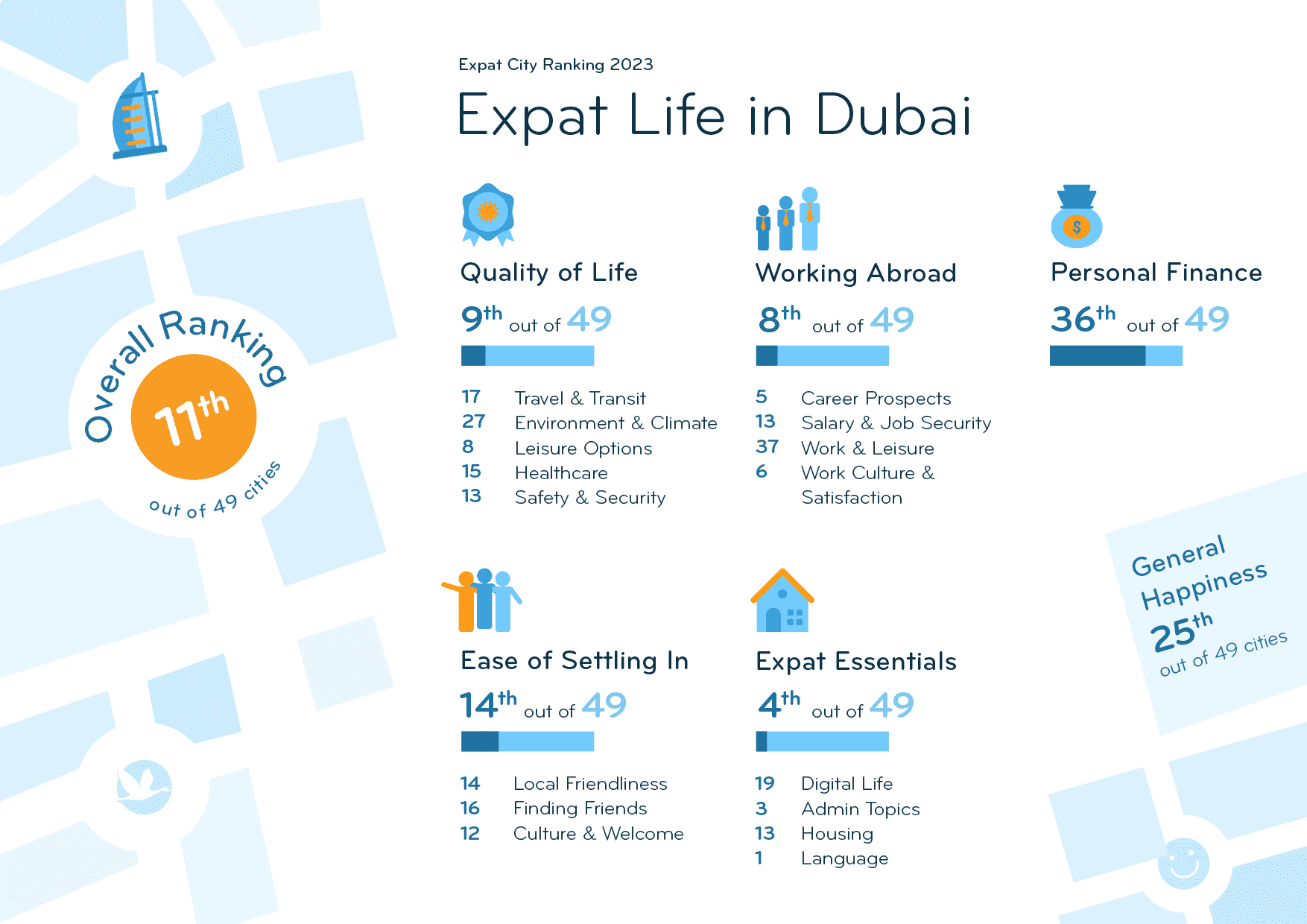Dubai: A Business Culture Where Creativity Rules
Expats love working in Dubai and enjoy a great quality. But does life in this popular expat hub come at a cost?
Dubai places 11th out of 49 in the Expat City Ranking 2023. The UAE’s expat hub gives its newcomers an easy start, according to the Expat Essentials Index (4th). Dealing with Admin Topics (3rd) is super simple, and it’s the easiest place in the world to get a visa (1st). Although expats are quite happy with the availability of government/administration services online (3rd), the city is in the bottom 3 (47th) for unrestricted access to online services like social media.

Dubai is also among the top 10 for Working Abroad (8th): 78% of survey respondents say that moving there has improved their career prospects (vs. 59% globally). And work satisfaction is extremely high: 77% believe that the local business culture encourages creativity (vs. 51% globally), and 62% say that it promotes independent work and flat hierarchies (vs. 46% globally).
Dubai also excels among the top 10 in the Quality of Life Index (9th): 89% appreciate the culinary variety and dining options (vs. 77% globally), and it’s in the top 10 for Leisure Options (8th). However, much like the other UAE cities in this ranking, expats miss the natural scenery. Only 56% are happy with the surrounding nature (vs. 84% globally), leaving Dubai among the bottom 3 cities for the natural environment (47th). But on the positive side, expats are very pleased with the quality and the availability of medical care (10th for both). They also value their personal safety (9th) and the political stability (7th).
The Personal Finance Index (36th) is Dubai’s weakest point for expats. Although 86% are happy with the state of the economy (vs. 62% globally), less than half (49%) are satisfied with their individual financial situation (vs. 58% globally). What’s more, only 35% say that their disposable household income is more than enough for a comfortable life (vs. 44% globally).
Further Reading
Advertisement
Join InterNations
The community for expats worldwide
Download

